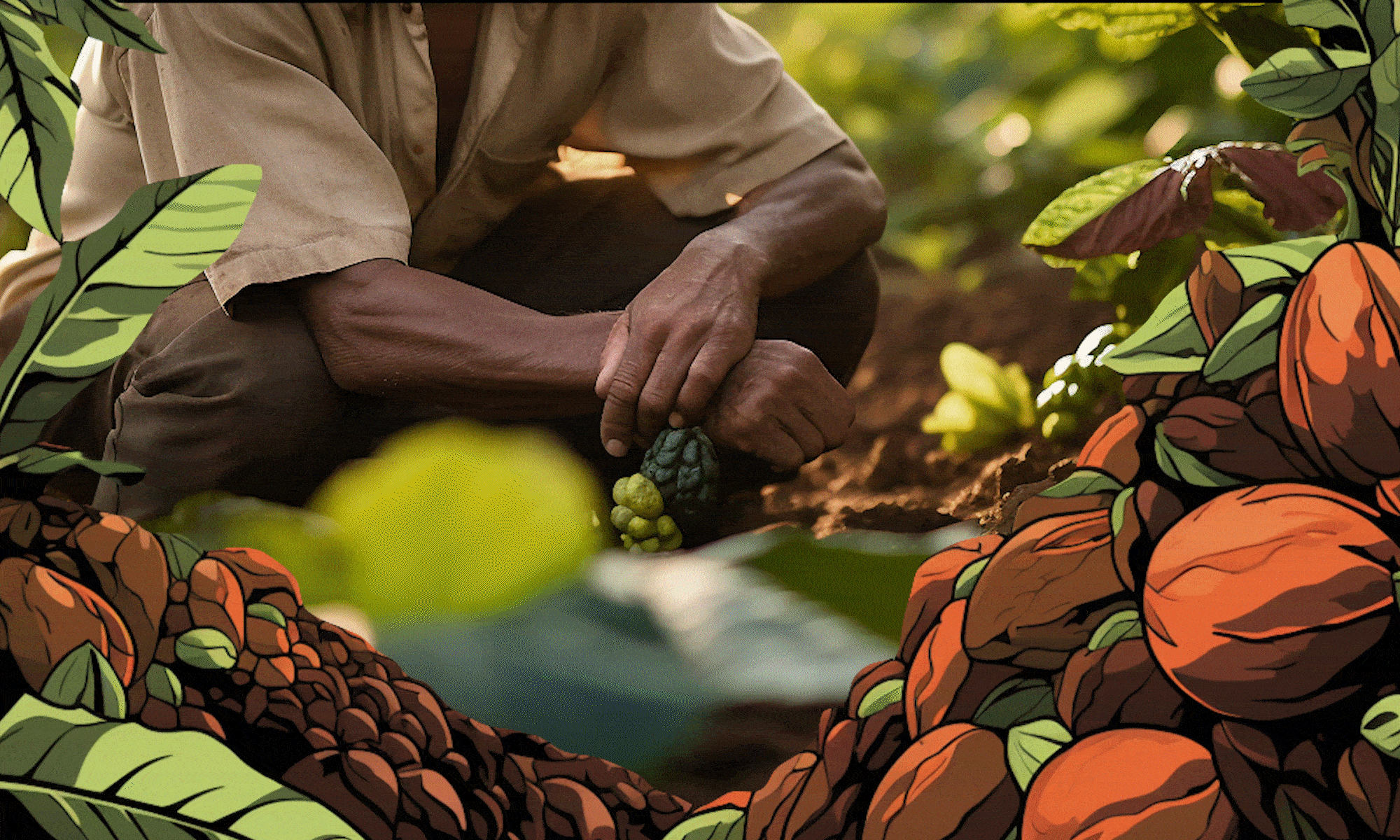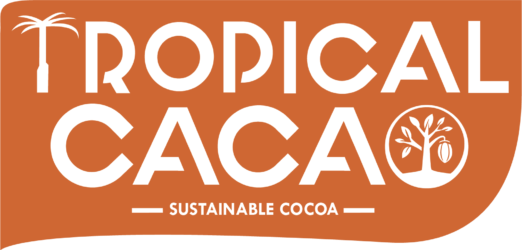Sustainable cacao farming is essential not only for the environment but also for the livelihoods of farmers and the communities dependent on cacao production. In the face of global challenges like climate change, deforestation, and social inequality, adopting sustainable farming practices is critical to ensure cacao production is both profitable and environmentally responsible. This article will explore the key practices that contribute to sustainable cacao farming and why they are crucial for the future of the industry.
Why Sustainable Cacao Farming Matters
Sustainable cacao farming benefits all aspects of the cacao supply chain—from farmers to consumers—and the environment. The growing demand for ethically sourced cacao means that chocolate companies, consumers, and farmers must prioritize practices that:
Protect the Environment: Minimize deforestation, conserve biodiversity, and reduce carbon footprints.
Ensure Fair Livelihoods: Provide farmers with a fair income, decent working conditions, and long-term economic stability.
Promote Transparency: Create traceable and responsible supply chains that allow consumers to make informed choices.
Key Sustainable Cacao Farming Practices
- Agroforestry: A Balanced Approach to Farming
Agroforestry is one of the most effective sustainable farming practices for cacao production. It involves growing cacao trees alongside other crops and native plants, creating a diverse ecosystem that benefits the environment and the farmer.
How It Works: Cacao is grown with shade trees, such as bananas or timber species, which help regulate the microclimate, improve soil fertility, and reduce erosion.
Benefits:
Increased Biodiversity: More plant and animal species thrive, contributing to a healthier ecosystem.
Reduced Environmental Impact: Trees capture carbon, help conserve water, and prevent soil degradation.
Economic Diversification: Farmers can sell multiple products (e.g., bananas, timber, spices), reducing their dependence on cacao alone.
- Organic Farming: Protecting Soil and Health
Organic farming involves avoiding synthetic fertilizers, pesticides, and herbicides, relying instead on natural methods to maintain soil health and prevent pests. This practice enhances the long-term productivity and health of cacao farms.
How It Works: Organic cacao farming uses compost, green manure, and natural pest control to nourish the soil and protect crops.
Benefits:
Healthier Soil: Improves soil structure and increases its ability to retain water and nutrients.
Reduced Chemicals: Reduces the use of harmful chemicals that can degrade the environment and affect farmer health.
Higher Market Value: Organic cacao often fetches higher prices due to its environmentally friendly production.
- Reduced Deforestation: Protecting Forests for Future Generations
Deforestation is a major issue in cacao production, as farmers clear forests to make way for new plantations. Sustainable cacao farming strives to reduce deforestation by promoting responsible land use.
How It Works: This practice involves avoiding the clearing of primary forests and instead using already degraded land or agroforestry systems that integrate cacao with other trees.
Benefits:
Preserves Biodiversity: Forests are home to a wide variety of species, and protecting them helps conserve global biodiversity.
Carbon Sequestration: Forests act as carbon sinks, helping to combat climate change by absorbing carbon dioxide from the atmosphere.
Ecosystem Health: Forests play a crucial role in maintaining water cycles, protecting watersheds, and preventing soil erosion.
- Water Conservation and Management
Cacao requires significant water resources, but with climate change and unpredictable weather patterns, water scarcity is becoming a major concern. Sustainable cacao farms must adopt water conservation strategies to ensure efficient use of water resources.
How It Works: Implementing rainwater harvesting systems, drip irrigation, and soil moisture monitoring can help optimize water use.
Benefits:
Reduced Water Waste: Efficient irrigation systems reduce water loss and ensure crops receive adequate moisture.
Better Yield Quality: Consistent moisture levels improve cacao bean quality and overall farm productivity.
Environmental Protection: Sustainable water management reduces pressure on local water supplies and minimizes ecosystem disruption.
- Fair Trade and Ethical Practices
Fair Trade certification is a powerful tool for ensuring that farmers receive fair wages and work in safe conditions. This practice promotes social justice and helps farmers invest in their farms and communities.
How It Works: Fair Trade initiatives guarantee farmers a minimum price for their cacao and provide additional premiums to invest in community development projects, such as healthcare, education, and infrastructure.
Benefits:
Improved Livelihoods: Fair wages allow farmers to meet their basic needs and improve their living conditions.
Community Development: The premiums from Fair Trade certification support local development, improving the quality of life for farmers’ families.
Incentive for Sustainable Practices: Fair Trade standards encourage environmental sustainability and social responsibility in cacao production.
The Role of Chocolate Companies in Supporting Sustainable Cacao
Chocolate companies have a significant influence on the cacao industry and are crucial in driving sustainability. By prioritizing sustainable sourcing practices, companies can:
Invest in Farmer Training: Provide education on sustainable farming techniques, improving productivity and environmental stewardship.
Promote Direct Trade Relationships: Work directly with farmers to ensure they receive fair prices and invest in long-term relationships.
Adopt Ethical Sourcing Standards: Commit to sourcing only from certified sustainable farms, such as those with Fair Trade or Rainforest Alliance certifications.
How Tropical Cacao Is Leading the Way
At Tropical Cacao, we are dedicated to promoting sustainable cacao farming practices that benefit both the environment and the farmers. Our initiatives include:
Agroforestry Projects: We work with farmers to integrate cacao with other crops, enhancing biodiversity and soil health.
Organic Farming: We support farmers in adopting organic practices to protect the environment and boost farm productivity.
Fair Trade Partnerships: We ensure that cacao farmers are paid fair prices and have access to community development funds.
We are committed to creating a sustainable future for cacao farming, fostering economic stability for farmers, and preserving the environment for future generations.
How Consumers Can Support Sustainable Cacao
Your purchasing choices can make a big difference in supporting sustainable cacao farming. Here are a few ways to help:
- Choose Sustainable Brands: Support companies that prioritize Fair Trade, organic, and sustainable sourcing practices.
- Look for Certifications: Look for chocolate products with certifications like Fair Trade, Rainforest Alliance, or Organic to ensure ethical production.
- Educate Others: Spread the word about the importance of sustainable cacao farming and encourage others to make informed choices.
Conclusion
Sustainable cacao farming is essential for ensuring the long-term viability of the cacao industry, protecting the environment, and improving the livelihoods of farmers. By adopting practices like agroforestry, organic farming, and Fair Trade, we can create a more equitable and environmentally responsible cacao supply chain.
At Tropical Cacao, we are proud to be part of this movement towards a more sustainable future. Visit Tropical Cacao to learn more about how we’re making a difference in the cacao industry and how you can support sustainable practices.

